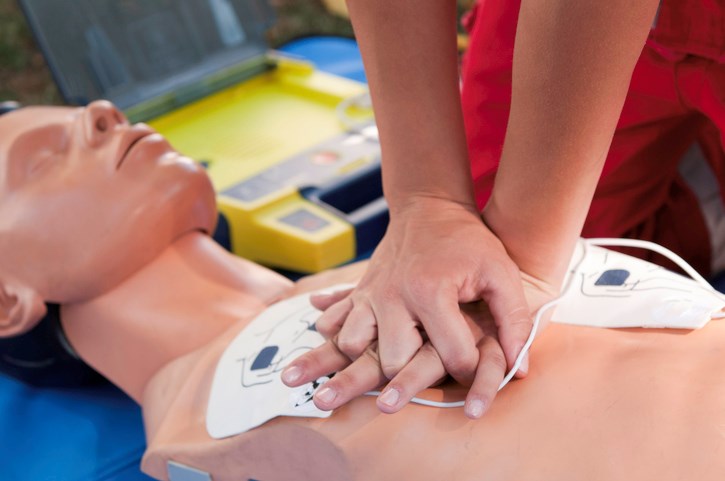While the inability to meet face-to-face has prevented some Catholic school division employees from renewing their CPR/First Aid licence, the organization is looking for ways to overcome that hurdle.
Twelve school administrators, four teachers and five support staff throughout Holy Trinity Catholic School Division are trained to handle emergencies that require First Aid or Cardiopulmonary resuscitation (CPR). Each school must have a minimum of two employees trained to deal with such issues.
After three years, the employees’ licences expire, which means they must renew their skills and training sometime this school year.
“The COVID and not being able to be face-to-face — or not (being sure of) what we can do in terms of the training — has caused our numbers not to be where they need,” explained superintendent Ward Strueby. However, the division office has two employees whose licences are up-to-date — they trained with municipal staff last year — and who will conduct some training in March.
“Having trained trainers within our division … allows us to be a lot more flexible,” he added.
Besides physical First Aid, the division also plans to train school administrators this March in a new course called Mental Health First Aid, Strueby told the board of education during its February meeting.
The division used grant funding from the Ministry of Education to train an employee in this area. That employee can use that knowledge to train others who interact with students regularly and who can assist youths if they are struggling psychologically.
Holy Trinity plans to train four school administrators, 16 teachers and 18 support staff in Mental Health First Aid.
This information was part of a report that Strueby presented about the activities in the Student Services department. The report reviewed community partnerships, professional development and the supports available to students to address their needs. It also highlighted the work of the division’s psychologists, counsellors and speech-language pathologists.
Student supports
Students with learning or behaviour needs require support, which usually leads to the creation of an intervention and inclusion plan to address these concerns, Strueby said.
In 2018-19, 69 students — or 3.1 per cent of division enrolment — throughout Holy Trinity required intensive support plans. In 2019-20, 71 students — or three per cent of division enrolment — required an intensive support plan. In 2020-21, 68 students — or 2.9 per cent of division enrolment — require an intensive needs plan.
Interestingly, Strueby continued, is that twice as many male students require an intensive needs plan compared to female students. For example, this year, 46 male students from pre-kindergarten to Grade 12 require a plan compared to 22 female students.
This ratio has remained roughly the same for the past three school years, according to the data.
Kinsmen Inclusion Centre
Holy Trinity has partnered with Moose Jaw Families for Change for the past two years to have special needs Grade 12 students work at the Kinsmen Inclusion Centre to keep them connected or transition them into the community.
“It has been wonderful, from our perspective, to see students interacting,” Strueby said.
Last year, graduated special needs students from Vanier Collegiate attended the centre three days a week before the division increased that attendance to full-time, he continued. The centre currently supports five students with intellectual disabilities.
However, the day program shut down in November and students now engage in virtual programming one to two days a week. Some activities include crafts, yoga, dance and book talks.
English as an Additional Language (ESL)
About 10 per cent of students from grades 1 to 12 have required extra support to develop their English skills during the past three school years, the report showed. This year, 10.6 per cent of students — or 249 youths — require some English help.
The data also shows that more students from grades 1 to 7 require EAL help than high school students.
This latter statistic worried Strueby, he explained, since he thought that high schools would be overwhelmed with youths who need EAL support. However, he discovered that students’ comprehension skills eventually catch up to their grade level, while the instructional strategies used to support EAL students were identical to those used with native English speakers.
The next Holy Trinity board meeting is Monday, March 15.




